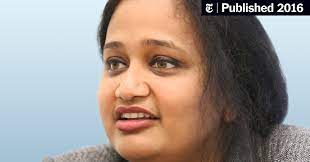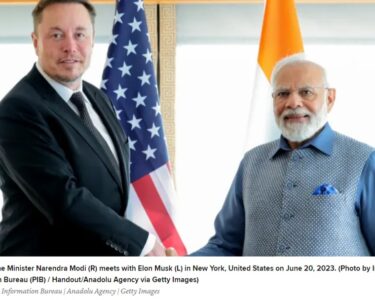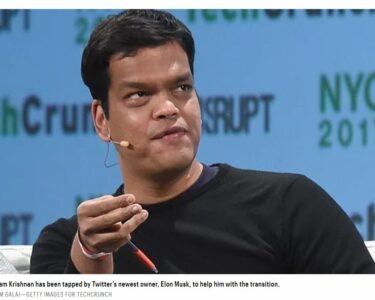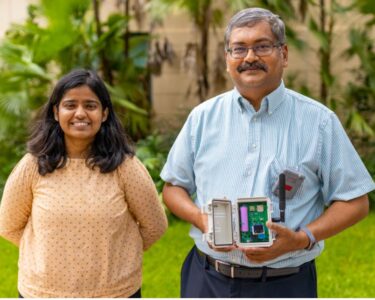By Adam Bryant
Kamakshi Sivaramakrishnan, the founder and C.E.O. of Drawbridge, a cross-device advertising platform.Credit…Earl Wilson/The New York Times
This interview with Kamakshi Sivaramakrishnan, founder and C.E.O. of Drawbridge, a cross-device advertising platform, was conducted and condensed by Adam Bryant.
Q. Tell me about your early years.
A. I grew up in Bombay, which is now called Mumbai. Education was always important in our family. I remember my mother saying often that if you study hard and do well, then you should achieve the success that you desire.
There was a natural proclivity to mathematics in our family, going back for generations, with a lot of accountants and civil servants. But there is zero entrepreneurial background. I never had a lemonade stand. All I wanted to have was a stellar academic career. And that stayed true through the course of my education, including in the U.S. for my advanced degrees. The fields that I chose were some version of applied mathematics for engineers.
My parents inspired me to pursue higher education, but at some point, the choices I was making appeared to them to be one challenge after another along an uncharted course. I remember my father asking, “Is there a reason that you don’t choose something that is considered to be normal? You’re always sort of moving toward the most challenging path, and not one that has been charted by us. We are not able to help you.” But it felt like a natural path to me.
I became an entrepreneur probably by accident. As you pursue a Ph.D., you’re an innovator, and that process is something I was constantly seeking. Being an entrepreneur is more about creating impact.
Back to your father’s point about your choices. Why have you always picked the more difficult path?
It has always been appealing to me. I do not like the beaten path, even in the personal choices that I made. I met my husband at grad school, we fell in love, we married. But in my family, you’re encouraged to follow the norms of an arranged marriage. I grew up having broken pretty much every rule in the book that I was given as a young woman or as a child.
I even left a fairly comfortable position at Google to start this company. There’s an innate desire in me to pursue what I feel is right for me at the time. And it doesn’t come from any kind of rebellious streak as much as it comes from a sense of conviction that I believe in this and I want to pursue it.
I was encouraged by my mother to not pay attention to the fact that I’m a female pursuing paths that probably not many women take. Sometimes she jokes, “I wish I hadn’t empowered you that much,” because I’m on this path she barely recognizes.
What are some lessons you’ve learned since starting your company?
As an entrepreneur, you’re wearing so many different hats, particularly in the early days. So the better you are at multitasking, the more comfortable you’re going to be. As I was growing up, I was involved in so many different extracurricular activities, including music and fine arts. I learned the art of dabbling in multiple pursuits, and doing them semi-seriously, including playing in concerts. That has helped me in many ways with what I do today.
I’ve also learned a lot about setting expectations. Entrepreneurs are very ambitious and can have an acute sense of the success and goals they’d like to achieve. But it’s a fine line between high expectations that are inspiring and high expectations that become demotivating. I’ve had my team talk to me about the right kind of balancing act.
Read the rest @ https://www.nytimes.com/2016/02/28/business/kamakshi-sivaramakrishnan-finding-direction-off-the-beaten-path.html






